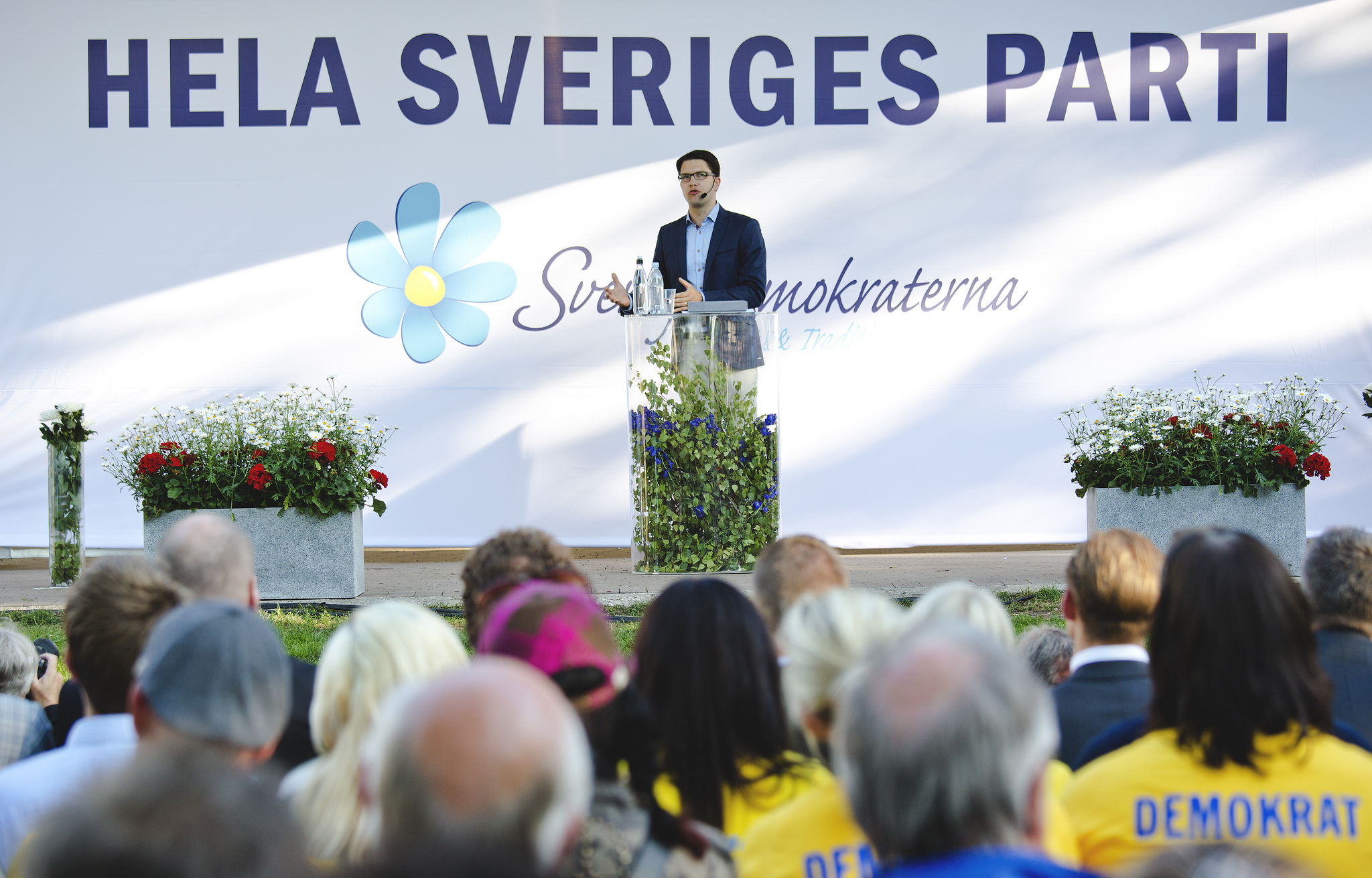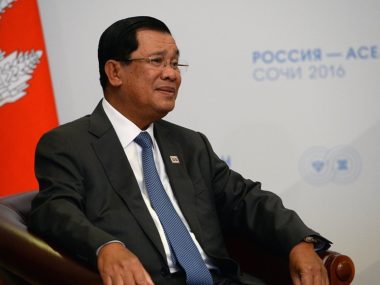By Timothy D. Sisk for Denver Dialogues.
The just-concluded elections in Sweden reveal that the vein of populism in Europe is not yet waning, and in some countries the “vote share” of populist parties continues to rise. In the globally watched Swedish elections, the far-right party Sweden Democrats garnered some 18% of the vote—less than predicted, but more than the vote share in the 2014 polls—becoming a significant factor in Sweden’s typically boring, centrist-oriented politics.
The rise of the populist-nationalist Sweden Democrats points to a more fundamental question: Is proportional representation (PR) and parliamentary government, like in Sweden, better for managing the challenges of political extremism? Washington Post columnist Anne Applebaum has rightly observed that “the vast majority of Swedes, even during a year completely dominated by the election debate, voted against [the Sweden Democrats].” As in the Swedish context, PR might give voice to more moderate Swedes who nonetheless do feel the need to reassert their ethnic identity or to send a signal of deep disillusionment…despite the party’s origins and de facto relationships with far-right hate groups in the country.
Democracy, polarization, and “populism”
Global, systemic challenges such as deep-seated economic inequalities, ethnic or sectarian tensions, and social pressures stemming from migration have led to increased social tensions in Western and emerging democracies alike. In many contexts, minority rights are particularly threatened in such polarized societies, as populism of the Left or Right and new nativist tendencies undermine internationally validated rights pertaining to minorities, migrants, and other vulnerable populations. Minority Rights Group International, stemming from its Peoples Under Threat monitoring methodology, raises concerns about worsening contexts for minorities globally; it’s 2018 report highlights threats to minorities from “creeping authoritarianism and growing concentrated power within the state” (citing polarized contexts such as Turkey, Venezuela, or DRC).
What do research findings say about the conditions under which a PR, as an electoral system, can help manage the perils of populism? Here are three findings derived from scholarly research.
Finding 1. Danger zones: Majority-rule+populism+presidentialism
First, majority-rule systems seem to make ethnic and race relations worse. Like in the 2016 presidential elections in the United States—in which the presidency was won in a campaign strategy featuring explicit and implicit ethnonationalist appeals, precipitating the debacle which has become of the low-legitimacy Trump Administration in the United States—when populism meets majority-rule institutions, democracy is deeply threatened.
Majority-rule elections distort vote-to-seat outcomes, limit representation by geographically dispersed minorities, and—in the context of an ethnic party system—increase the likelihood a single ethnic group or coalition of ethnic groups will govern exclusively and to the detriment of others. As well, majoritarian systems seem to be especially vulnerable to elites who “play the communal card” as an instrumental strategy, sowing fear and trumpeting nationalism as a deliberate electoral strategy.
It is true, sometimes, as presently in Ethiopia—where President Abiy Ahmed is making moves to unite a diverse Ethiopian “nation”—inclusive, moderate, unifying presidents do emerge. But if the world is waiting for more leaders like the promising Abiy Ahmed, or legendary Nelson Mandela, they unfortunately seem to be few and far between. President Barack Obama, who won the Nobel Prize in 2009 principally for his vision of global diplomacy, should well have been awarded the honor in part for his ability to stitch together and to personally emblemize a multiracial vision of a rapidly diversifying United States.
Finding 2. Electoral systems matter, a lot. In most contexts, PR seems to have some clear advantages.
Electoral systems—the rules by which voters are turned in to “seats,” or in practice winners and losers for positions of authority and resources—matter…a lot. This is true because, as the eminent Italian political scientist Giovanni Sartori has written, electoral systems are “the most specific manipulative element of politics.” Electoral systems reflect a deep view of democracy, from ideas of “democracy as majority rule” to “democracy as a route to representation of social groups.” Electoral systems have significant effects on a number of key arenas of democracy: political party “systems” (e.g., whether political parties are more Left-Right or “ethnic”), the nature of political campaigns and candidate behavior, the design of ballots and opportunities of voting, and…winners and losers in elections contests.
A deep vein in the literature is the argument that proportional representation (PR) systems—which vary, but in essence seek to match “vote share” to “seat share”—are the key to managing political extremism. The debate over which electoral system is best is complicated because electoral system design can be a very technical matter; the outcomes that flow from a specific choice are highly dependent on unknowns such as the spatial distribution of votes, shifting party alignments and inter-party pacts, and voting behavior. Without grossly over-simplifying a complex literature, there remain good reasons to consider overall proportionality, and thus some form of PR, for electoral systems in giving “voice” to political extremism.
All eyes in South Africa in 2019 are on whether the putatively moderate African National Congress, under the banner of the new (indirectly) elected President Cyril Ramaphosa, can withstand the wildly symbolic and deeply emotive challenge coming from the Leftist populists, the Economic Freedom Front (EFF). The election in South Africa will feature very low threshold PR (where 1% of the vote could yield seats in the National Assembly). While it seems now unlikely the EFF would win a majority in the “polarized pluralism” (or a fractured party system) of South Africa, the populist firebrands could emerge as coalition-makers in national, regional, or local government settings. South Africa’s faces serious risks of “polarized pluralism,” or a hopelessly fractured party system.
Finding 3. Electoral reform: Urgent, yet stuck between a rock and a hard place
Electoral systems, like most political institutions, are stuck in the past. Typically, deep changes in elections systems are hard to achieve. And, institutions have staying power: the incentive systems they create lead to their perpetuation, as scholars of historical institutionalism have long argued.
So while PR may be better at managing populism, that doesn’t mean that societies with majority-rule democracies will likely be able to move a more appropriate system soon. Despite the urgency of revisiting political institutions chosen long ago for much different circumstances, most societies retain the electoral system they have, which essentially means keeping what others decided was best (or in their own interests) some time ago.
In most situations, it appears that PR is a better approach to managing extremism. For this reason, it appears that many countries which have seen wholesale constitution-making after conflict, when tasked with the challenge of designing an electoral system anew, have either opted for unusual approaches (such as the adoption of the Single Non-Transferable Vote in Afghanistan, which does not require political parties), simple approaches (such as List-Proportional Representation, or PR, in South Africa) or mixed approaches that combine majoritarian single-member districts and PR (as in Nepal for its 2017 polls).
Democracy put to the test
Sweden’s democracy, long-reflecting commitment to individual rights, equality, and inclusive governance, is being put to the test. At this point, of all the democracies in the world, Sweden’s seems resilient… grounded in an ethos of inclusion and bargaining. So, too, in the Netherlands, which saw populist grab spotlights, but not power, in the March 2017 elections (rejecting ethnic entrepreneurs such as populist rouser Geert Wilders), proportional representation may contribute to managing the social pressures and associated grievances which populist extremist exploit. But the problem of populism remains a threat to democracies globally, from India which will go to elections in 2019, to South Africa where contending nationalisms once again will clash, and in the upcoming US legislative elections in November.
Thinking through how the electoral system may or may not contribute to managing the perils of populism will be an important part of assessing the ability of democracy in these contexts to manage the pressures of politics in a diversifying world. Majority-rule democracies seem most vulnerable to polarization and populism’s perils; those with PR, less so.







1 comment